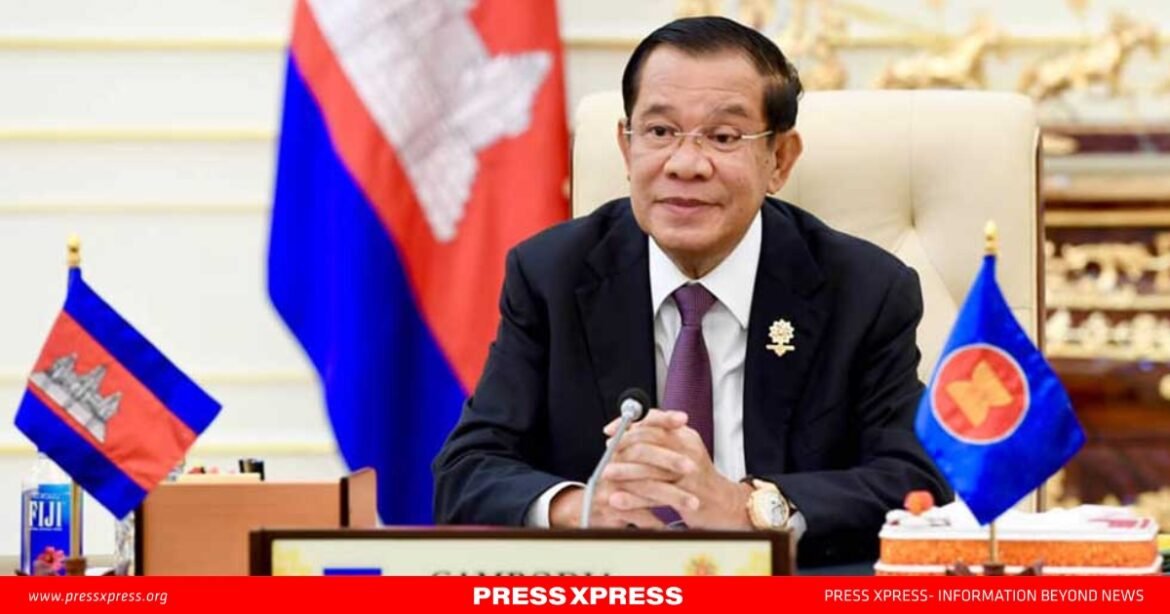In a recent lecture delivered at the Economic Research Institute for ASEAN and East Asia (ERIA) School of Government in Jakarta, Senate President Hun Sen presented a detailed reflection on Cambodia’s remarkable journey from war-torn devastation to economic growth. At the heart of his address was a strong critique of foreign interference in the internal affairs of developing countries, particularly Cambodia.
Below are the key findings and analysis from his lecture:
The Success of the Win-Win Policy
- Key Finding: Hun Sen underscored the pivotal role of the Win-Win policy in bringing peace and territorial unity to Cambodia in 1998. The policy, which he initiated, marked the end of a decade-long civil war and set the stage for long-term peace.
- Analysis: The Win-Win policy not only ended violent conflict but also led to Cambodia’s territorial cohesion, representing a turning point in a nation that had endured centuries of instability since the fall of the Angkorian Empire.
Post-Khmer Rouge Recovery
- Key Finding: Reflecting on Cambodia’s recovery after the fall of the Khmer Rouge regime in 1979, Hun Sen highlighted the severe challenges the country faced, including a lack of infrastructure, human resources, and the burden of international sanctions.
- Analysis: Despite the dire situation, Cambodia managed to begin rebuilding its economy and institutions. However, Hun Sen pointed out that the international community did not initially recognize the newly established government, further hindering the country’s recovery.
Criticism of Foreign Interference
- Key Finding: A central theme in Hun Sen’s speech was the condemnation of foreign interference in the affairs of developing nations. He argued that such interference destabilizes countries, exploits their vulnerabilities, and impedes their path to development.
- Analysis: Hun Sen emphasized that foreign nations often take advantage of the political and economic weaknesses of developing countries, especially during times of crisis, leading to further instability and unrest.
Exploitation of Developing Countries by Wealthier Nations
- Key Finding: Hun Sen pointed out the tendency of developed countries to exploit poorer nations, particularly in times of hardship such as economic crises and political instability.
- Analysis: Instead of offering genuine support, wealthier nations often prioritize their own interests, exacerbating the struggles of developing countries. This exploitation, Hun Sen argued, hinders these nations’ ability to stabilize and grow independently.
The Dangers of Military Intervention
Key Finding: Hun Sen criticized military interventions, particularly those aimed at regime change, as a dangerous form of foreign interference. He referred to the recent situations in Afghanistan and Bangladesh as examples where such interventions deepened instability and caused lasting humanitarian crises.
Analysis: According to Hun Sen, military interventions often worsen existing problems rather than solving them. He warned that foreign military involvement has historically led to disastrous consequences, urging for a shift away from such tactics.
Advocating for Constructive Support, Not Interference
- Key Finding: Hun Sen called for developed nations to offer constructive support to developing countries, emphasizing that such support should respect national sovereignty and avoid attempts to impose foreign agendas.
- Analysis: Rather than meddling in the internal politics of sovereign nations, the international community should engage in partnerships that assist in development without obstructing or belittling the efforts of countries to shape their own futures.
Reaffirmation of Cambodia’s Sovereignty
Key Finding: A key aspect of Hun Sen’s address was the reaffirmation of Cambodia’s sovereignty. He stressed that Cambodia, like any nation, has the right to determine its political path without external interference.
Analysis: Hun Sen’s call for sovereignty aligns with his broader criticism of foreign interference. He emphasized that each country, regardless of its size or wealth, should be treated with equal dignity and respect on the global stage.
Global Cooperation Based on Respect and Equality
- Key Finding: In conclusion, Hun Sen advocated for international relations built on mutual respect, equality, and constructive cooperation. He rejected foreign attempts to impose ideologies or systems on smaller nations and called for a more inclusive approach to global diplomacy.
- Analysis: Hun Sen’s vision for global cooperation emphasizes partnerships that foster mutual growth, highlighting the importance of understanding each nation’s unique historical, cultural, and political context. By promoting respect and inclusivity, Cambodia seeks to build its future without the burden of foreign interference.
Cambodia’s Sovereignty and Path Forward
Hun Sen’s lecture was not only a reflection on Cambodia’s extraordinary recovery but also a clear message about the dangers of foreign interference. His call for greater respect for sovereignty and constructive international support reflects Cambodia’s desire to continue its development without external obstruction. Through his address, Hun Sen advocates for a redefined approach to global diplomacy—one that ensures equality, respect, and genuine cooperation in the face of challenges faced by developing nations.


